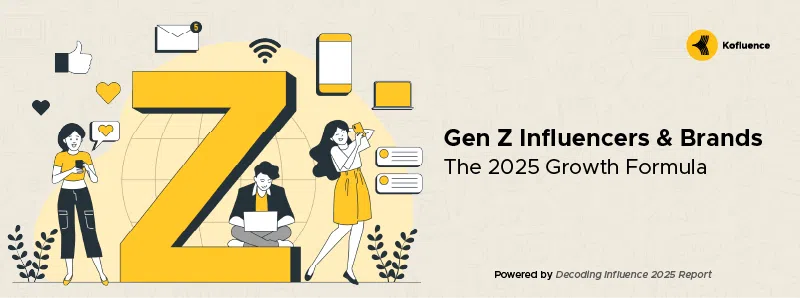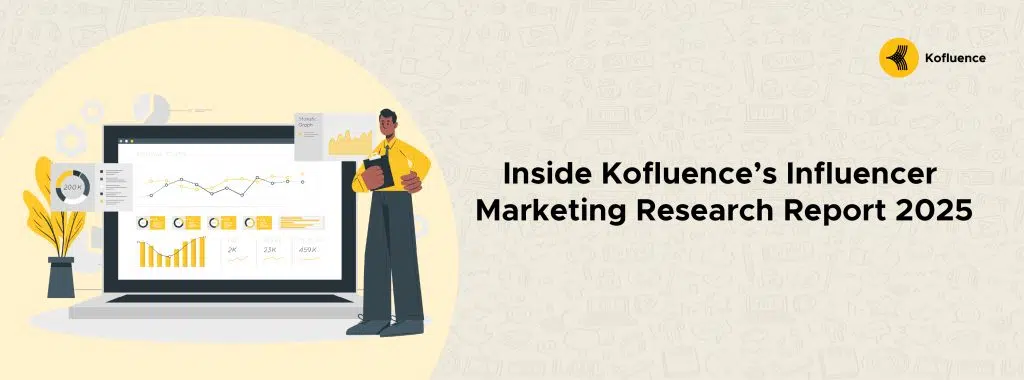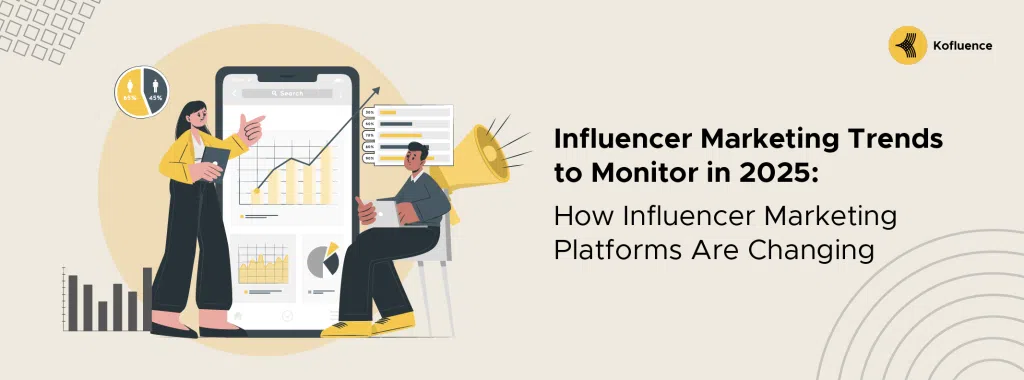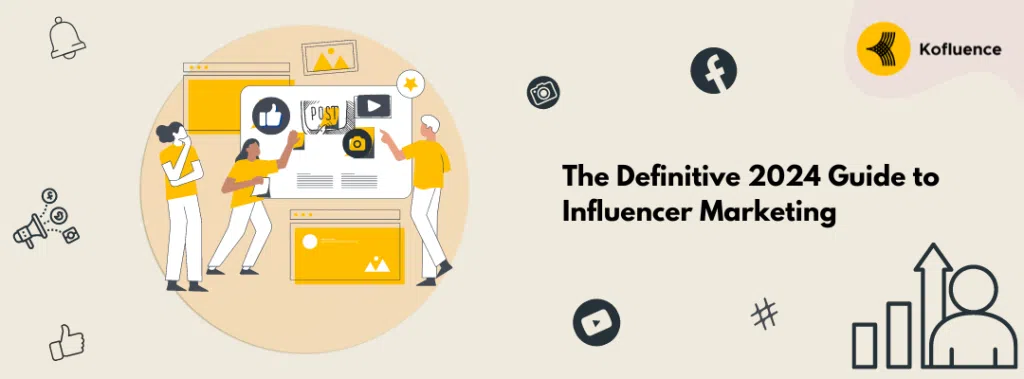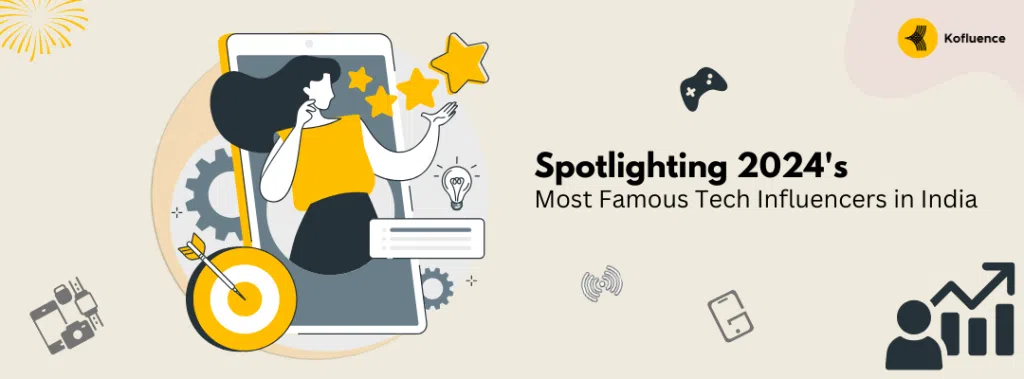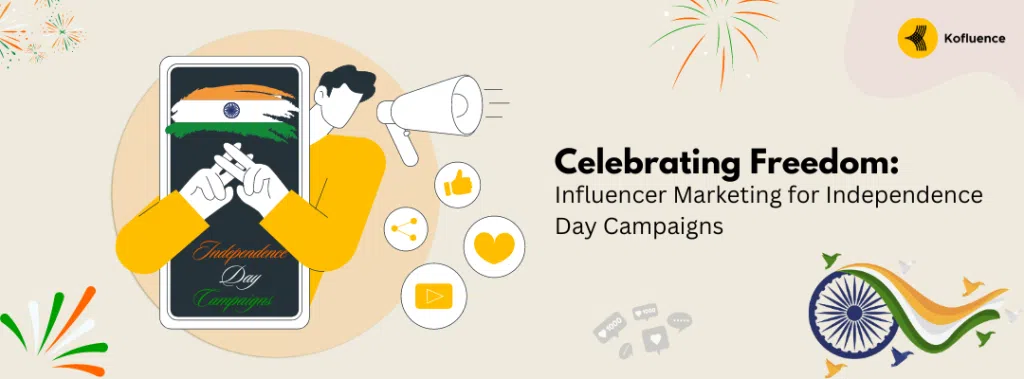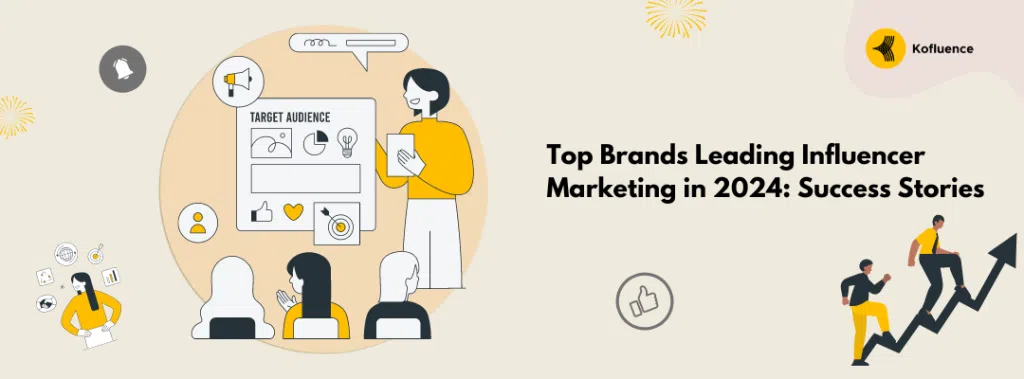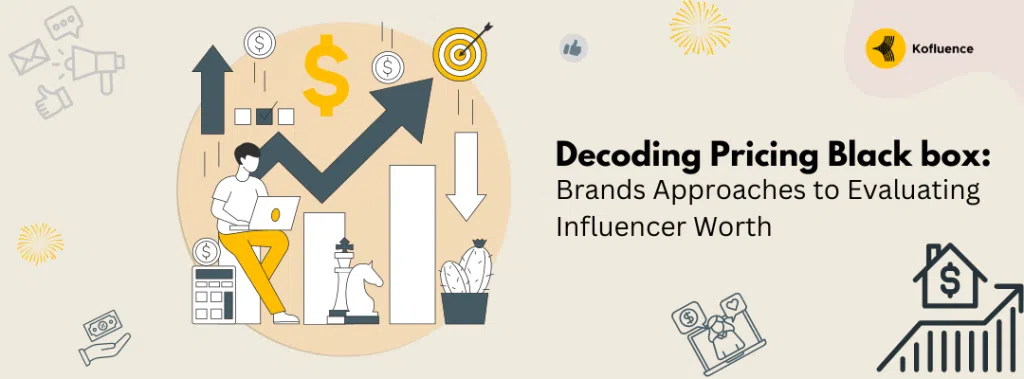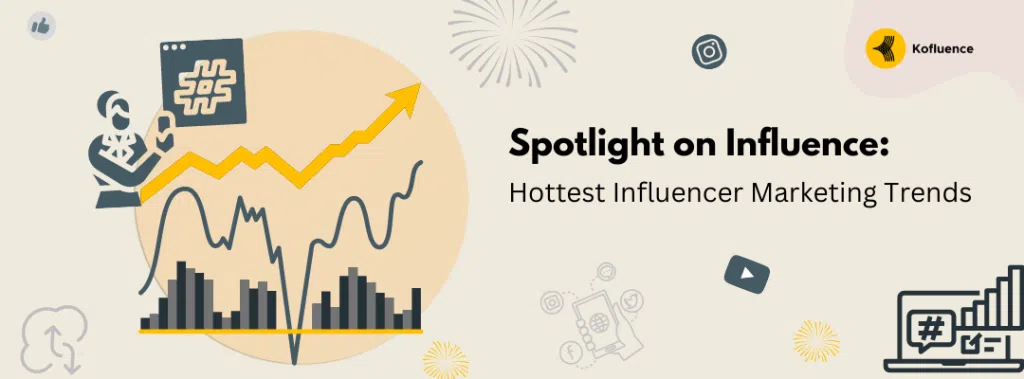Listen to Audio Blog
Table of contents:
Understanding Direct-to-Consumer (D2C) Influencer Marketing
Identifying the Right Influencers for Your Campaign
Building a Strategic Partnership with Influencers
Crafting Compelling D2C Influencer Campaigns
Measuring Success and Analyzing Campaign Performance
Overcoming Challenges in D2C Influencer Marketing
Case Studies: Successful D2C Influencer Campaigns
The Future of D2C Influencer Marketing
Introduction
In today’s digital age, influencer marketing has emerged as a powerful tool for brands to connect with their target audience more directly. Direct-to-consumer (D2C) influencer marketing is a strategic approach that allows brands to bypass traditional intermediaries and establish a direct line of communication with consumers through influencers. This guide aims to provide a comprehensive understanding of D2C influencer marketing by exploring its benefits, strategies, and critical considerations for successful campaigns. By leveraging the power of influencers, brands can build trust, drive brand awareness, and ultimately, achieve sustained success in the competitive marketplace.
Overview of direct-to-consumer (D2C) influencer marketing
Although a new form of marketing, direct-to-consumer helps brands to maintain direct contact with their customers and target audience. It plays a crucial role in increasing sales, and has a greater reach for this day and age, considering the role that social media plays in marketing. This novel form of marketing takes advantage of the reach that social media influencers have through their significant number of followers and promotes products and services on their social media pages. D2C marketing thereby helps brands to create authentic relationships with their consumers by going around the traditional forms of advertising that have been practiced for a long time. The aforementioned advantage has made the D2C form of marketing more preferable as brands now see improvements in their ROI in the form of increased brand awareness, customer engagement, and higher demand for their products or services.
Importance of effective campaigns
For businesses that run in today’s era, campaigns play an instrumental role in their success. Sales can improve drastically and brands can attain a better reach with the help of campaign strategies that are well-planned and better thought of. Creativity plays a big part when it comes to campaigns that must catch the eye of the viewers as every other competitor is innovating and reimagining their ways to campaign and compete in this business environment. Therefore, a step away from the primitive methods of marketing had to be taken in order to stand out from the crowd. Brands realize that a more personal approach must be taken in order to create more long-lasting relationships with the consumer, as they must remember the name of the brand and what they provide.
Why should I know about D2C marketing?
The answer to this question is simple: the trend. Everybody’s on social media nowadays, and statistically, the viewership of cable television has decreased, as has the subscription to newspapers. When it comes to traditional forms of advertising, most efforts go in vain. Therefore, brands must go where consumers go, and these places include Instagram, Twitter, YouTube, etc. So if you have a brand that targets a younger audience but you are not up-to-date with the newest form of marketing which is D2C, then you will have to rethink your marketing strategies. Businesses must be aware of many aspects of D2C influencer marketing, some of which include strategies, advantages, and challenges, taking note of the various methods to effectively strategize and market their through this form of marketing that is the talk of the town.
In addition to leveraging the reach and influence of social media personalities, direct-to-consumer (D2C) influencer marketing campaigns require careful planning and measurement of their effectiveness. By setting specific goals and objectives, brands can effectively collaborate with influencers in creating content that aligns with their target audience. Moreover, tracking key performance indicators such as engagement rates, click-through rates, and conversion rates allows brands to make data-driven decisions and optimize their campaigns for maximum impact. Successful D2C influencer marketing campaigns emphasize authenticity, transparency, and meaningful collaborations to drive brand awareness and ultimately boost sales.
Understanding Direct-to-Consumer (D2C) Influencer Marketing
Along with gaining clarity on what D2C influencer marketing is used for and how to make the best use of the same, Key Performance Indicators (KPIs) have a huge part in influencer marketing as it measures key metrics such as engagement rate, conversion rate, and return on investment (ROI). These are the essentials to check if a brand’s campaign is effective and efficient, and if not, ways to improve the same. Apart from this, understanding KPIs help in understanding the behavior of consumers, trends, and preferences that help brands to pinpoint their marketing strategies, providing a more personalized approach to their campaigns and long-lasting impact on their consumers.
Definition and key principles of D2C influencer marketing
D2C influencer marketing is a strategic approach that involves collaborating with influential individuals to promote products or services directly to consumers. The key principles of this marketing strategy lie in identifying relevant influencers who align with the brand’s values and target audience, creating authentic content that resonates with consumers, and leveraging the influencers’ reach to drive brand awareness and increase sales. By harnessing the power of social media and the credibility of influencers, D2C brands can effectively engage with their target consumers, build trust, and ultimately, drive success.
Comparison with traditional marketing methods
When comparing direct-to-consumer (D2C) influencer marketing with traditional marketing methods, there are several key differences worth noting. Firstly, D2C influencer marketing allows brands to directly engage with their target audience through trusted influencers, increasing the likelihood of a genuine connection and brand loyalty. Additionally, D2C influencer marketing offers the advantage of real-time feedback and analytics, enabling brands to track the success of their campaigns and make data-driven decisions. In contrast, traditional marketing methods often rely on mass advertising and lack the personalized touch and immediate insights provided by influencer marketing.
Advantages and benefits of D2C influencer marketing
One of the significant advantages of D2C influencer marketing is the potential to reach a highly targeted audience. By partnering with influencers who have a niche following, brands can ensure their message reaches the right consumers who are more likely to be interested in their products or services. Furthermore, D2C influencer marketing provides enhanced authenticity and credibility to a brand’s marketing efforts, as influencers often have a strong rapport with their followers, resulting in increased trust and engagement. Overall, these benefits contribute to the success of D2C influencer marketing campaigns.
In conclusion, direct-to-consumer (D2C) influencer marketing has proven to be an invaluable tool for businesses looking to drive success. By leveraging the power of authentic and influential individuals within their target audience, brands can connect with consumers on a deeper level and inspire action. However, organizations must adopt a strategic approach when implementing D2C influencer campaigns. This involves identifying the right influencers, setting clear goals, and integrating influencer content seamlessly into the marketing mix. Ultimately, by following these guidelines, businesses can maximize the potential of D2C influencer marketing for effective and impactful campaigns.
Identifying the Right Influencers for Your Campaign
Influencers cater to a variety of audiences and speak about a plethora of topics of interest. If a brand decides to go ahead with D2C influencer marketing, it must consider three main variables- authenticity, credibility, and alignment with the brand. Quality over quantity should be prioritized when it comes to choosing influencers, as a well-aligned and engaged audience is more likely to drive successful outcomes. Many factors come into play when deciding which influencer to choose for a campaign, such as their reachability (followers, likes, shares, etc.), the type of content made, their target audience, the nature and style of their content, and past work and collaborations. Once these factors are researched and an appropriate influencer is chosen for the campaign, it will be almost certain that consumers will keep the said campaign in their memory, as it is now presented in a more relatable and entertaining fashion.
Importance of influencer selection
One of the most crucial aspects of a successful direct-to-consumer (D2C) influencer marketing campaign is the careful selection of influencers. The importance of this cannot be overstated, as the wrong choice can lead to ineffective campaigns and wasted resources. It is essential to consider factors such as the influencer’s relevance to the brand, engagement rates, authenticity, and reach. By thoroughly evaluating and selecting influencers that align with the brand’s values and target audience, companies can ensure that their influencer marketing campaigns will have a greater impact and drive success.
Defining the target audience and matching influencers accordingly
Defining the target audience is a crucial step in any influencer marketing campaign. Identifying the demographic characteristics, interests, and preferences of potential customers allows brands to connect with the right influencers who possess the expertise and credibility to resonate with that specific audience. By understanding the target audience, brands can select influencers who align with their values and have a sizable following in the desired niche. This strategic pairing enhances the likelihood of a successful campaign where the influencers’ content is well-received, increasing brand visibility and engagement.
Evaluating influencer authenticity and Credibility
To implement effective D2C influencer marketing campaigns, it is necessary to assess the authenticity and credibility of influencers. Authentic influencers are transparent about their partnerships and disclose sponsored content to maintain their credibility. Researching influencers’ histories, engagement rates, and audience demographics ensures that their principles are in line with the brand’s and that they can effectively reach the target audience. In addition, evaluating the influencer’s track record for consistently high-quality content and positive audience sentiment is crucial for determining their reliability and authenticity.
In addition, the use of influencer marketing in direct-to-consumer (D2C) campaigns has proved to be highly effective at promoting brand success. By leveraging the authenticity and credibility of influencers, businesses can more effectively reach their target audience. In addition, influencers can generate creative and engaging content that resonates with their followers, thereby boosting brand awareness and pushing customer acquisition. In today’s highly competitive digital landscape, D2C influencer marketing has the potential to yield remarkable results for businesses when combined with the proper influencer selection and meticulous planning.
Building a Strategic Partnership with Influencers
Brands and influencers must be on the same page while strategizing the campaign. Both parties must lay their cards on the table and project their objectives, expectations, and guidelines. A balance must be maintained between the brand, which is trying to promote its product/service, and the influencer, who wishes to provide content that is entertaining and in line with their style of communication. Furthermore, brands must provide the required resources to the influencer such as product samples, and detailed briefs, and even facilitate their creative process. There must be regular back-and-forth communication between the influencer and the brand, providing updates and transparency throughout the process.
Steps to approach influencers and establish collaborations
Once the collaboration with influencers has been established, it is crucial to maintain a strong relationship. Regular communication is vital to ensure both parties are aligned and that the campaign is progressing smoothly. Providing influencers with clear guidelines and expectations will help them deliver the desired content effectively. Additionally, offering incentives and rewards for successful campaigns can further motivate influencers to generate engaging and impactful content. By nurturing these partnerships, brands can achieve long-term success and maximize the benefits of their D2C influencer marketing campaigns.
Negotiating terms and objectives of the partnership
When it comes to negotiating the terms and objectives of a partnership in direct-to-consumer (D2C) influencer marketing, open and effective communication is key. Both the brand and the influencer need to establish clear expectations and desired outcomes for the campaign. This includes defining deliverables, timelines, and compensation. Additionally, parties should address any potential conflicts of interest and establish guidelines for content creation and brand representation. By discussing these elements in-depth, a successful partnership can be formed, ensuring that both parties are aligned in their goals and objectives.
Ensuring transparency and maintaining a positive working relationship
Ensuring transparency and maintaining a positive working relationship are essential components of successful direct-to-consumer (D2C) influencer marketing campaigns. Brands must be transparent about their objectives, expectations, and compensation agreements with influencers to avoid any misunderstandings. Regular and open communication helps build a trusting environment, fostering a positive working relationship between the brand and the influencer. This collaborative approach enhances the campaign’s effectiveness and helps both parties navigate any potential challenges or conflicts that may arise. Ultimately, transparency and maintaining a positive working relationship contribute to the overall success of the D2C influencer marketing campaign.
In today’s digital age, direct-to-consumer (D2C) influencer marketing has emerged as a powerful tool for companies to reach their target audience. By partnering with influencers who have a strong online presence and a loyal following, brands can effectively promote their products or services. This strategy allows companies to bypass traditional advertising channels and connect directly with consumers, thus building brand awareness and driving sales. To ensure a successful D2C influencer marketing campaign, it is crucial for brands to carefully select influencers that align with their values and target demographic, craft compelling and authentic content, and measure the campaign’s performance through key metrics such as engagement and conversions.
Crafting Compelling D2C Influencer Campaigns
D2C influencer marketing campaigns must be informative, entertaining, and persuasive. For successful influencer interactions, brands must define their objectives, intended audience, and key messages. The balance between the influencer’s creative license and authenticity along with the brand’s motives and messaging must be kept for an effective campaign that will increase brand awareness, boost conversions, and cultivate long-term consumer loyalty.
Developing clear campaign goals and messaging
Developing clear campaign goals and messaging is crucial for the success of a D2C influencer marketing campaign. By clearly outlining the goals, brands can ensure that influencers are aligned with their intentions and can effectively communicate the message to their audience. This not only helps in generating awareness but also drives conversions and results in a higher return on investment. Moreover, crafting a compelling messaging strategy is essential to ensure the message resonates with the target audience and motivates them to take the desired action.
Tailoring content to resonate with the target audience
Tailoring content to resonate with the target audience is a fundamental aspect of successful direct-to-consumer (D2C) influencer marketing campaigns. Understanding the needs, preferences, and characteristics of the intended audience allows brands to create content that speaks directly to their interests and triggers an emotional connection. By aligning the messaging, tone, and style with the target audience’s values and aspirations, brands can effectively capture their attention, build trust, and ultimately drive engagement and conversions. This approach ensures that the influencer’s content resonates with the target market, leading to a higher likelihood of success for the overall campaign.
Leveraging storytelling and authenticity for enhanced engagement
To drive successful direct-to-consumer (D2C) influencer marketing campaigns, leveraging storytelling and authenticity is paramount for enhanced engagement. Storytelling allows influencers to connect with their audiences on a deeper level, creating an emotional bond and fostering trust. By sharing genuine and relatable experiences, influencers can engage with consumers and convey the value of the products or services being promoted. By prioritizing authenticity in their campaigns, brands can establish credibility and establish stronger connections with their target audience, leading to increased brand loyalty and higher conversion rates.
One factor that sets direct-to-consumer (D2C) influencer marketing campaigns apart is their ability to drive success for brands. By leveraging the reach and impact of influencers, companies can effectively promote their products or services directly to consumers. This approach eliminates the need for traditional intermediaries, resulting in greater control over messaging and target audience. D2C influencer marketing has proven to be an effective strategy for building brand awareness, driving sales, and fostering customer loyalty. Brands that implement this approach can create a direct connection with consumers, leading to increased engagement and ultimately, a higher chance of success.
Measuring Success and Analyzing Campaign Performance
Evaluating the effectiveness of direct-to-consumer (D2C) influencer marketing campaigns involves critical steps such as gauging achievement and scrutinizing campaign outcomes. Key indicators like outreach, involvement, and conversions aid companies in evaluating the influence of their campaigns. Through meticulous analysis of these indicators, marketers can detect patterns, refine strategies, and base decisions on reliable data to attain triumph. Furthermore, by monitoring essential performance metrics and examining campaign outcomes, businesses can comprehend their return on investment and make well-informed choices for future campaigns. Ultimately, the meticulous evaluation of achievement and campaign outcomes plays a pivotal role in optimizing the efficiency of D2C influencer marketing endeavors.
Key metrics to track and evaluate the effectiveness of D2C influencer campaigns
Tracking and evaluating the effectiveness of direct-to-consumer (D2C) influencer campaigns requires careful consideration of key metrics. Firstly, measuring the reach and engagement of the campaign can provide insights into the audience’s receptiveness. Conversion metrics, such as click-through rate and sales data, are crucial indicators of the campaign’s impact on driving consumer actions. Additionally, monitoring brand sentiment and social media mentions helps gauge the overall perception of the brand and campaign effectiveness. Overall, a comprehensive analysis of these key metrics enables marketers to optimize D2C influencer campaigns for maximum impact and success.
Analyzing ROI and conversion rates
In addition to tracking engagement and brand awareness, brands must analyze the return on investment (ROI) and conversion rates of their influencer marketing campaigns. This data provides insights into the actual impact and effectiveness of these campaigns in driving sales and generating revenue. By analyzing ROI, brands can determine the cost-effectiveness of their influencer partnerships and make informed decisions regarding future collaborations. Conversion rates, on the other hand, indicate the percentage of viewers who took desired actions, such as making a purchase or signing up for a mailing list, which is a valuable metric for evaluating campaign success.
Adjusting strategies based on campaign performance data
Adjusting strategies based on campaign performance data is essential for driving success in direct-to-consumer (D2C) influencer marketing campaigns. Analyzing the data allows marketers to gain valuable insights into what is or isn’t resonating with their target audience. By monitoring metrics such as engagement rates, click-through rates, and conversions, marketers can identify areas that need improvement and make necessary adjustments to optimize future campaigns. This data-driven approach ensures that influencers are strategically chosen, content is tailored to audience preferences, and campaigns deliver the desired outcomes.
In today’s digital age, influencer marketing has emerged as a powerful strategy for brands to directly engage with their target audience. Direct-to-consumer (D2C) influencer marketing offers a unique opportunity for businesses to create authentic connections with consumers, boost brand awareness, and drive sales. By collaborating with influential individuals who align with their brand values, companies can leverage the trust and credibility of these influencers to reach a wider audience and generate positive word-of-mouth. With effective campaign planning and execution, D2C influencer marketing can be a game-changer for any brand seeking success in the highly competitive market.
Overcoming Challenges in D2C Influencer Marketing
In conclusion, overcoming challenges in D2C influencer marketing is crucial for driving success. One key challenge is ensuring the authenticity of influencer partnerships by thoroughly vetting potential collaborators and establishing clear guidelines for brand alignment. Additionally, navigating the evolving landscape of social media platforms and staying up-to-date with trends and algorithms requires adaptability and a forward-thinking approach. Lastly, measuring and analyzing campaign performance through relevant metrics is essential for optimizing future strategies and achieving desired outcomes. By addressing these challenges head-on, brands can maximize the potential of D2C influencer marketing and achieve effective and impactful campaigns.
Dealing with influencer fraud and fake followers
In the realm of direct-to-consumer (D2C) influencer marketing, one of the challenges faced by brands is dealing with influencer fraud and fake followers. The rise of social media has led to an influx of individuals claiming to be influential, making it difficult for brands to identify genuine influencers. Distinguishing between authentic influencers and those with purchased or fake followers is crucial to ensure the success of D2C campaigns. Brands must implement strategies like conducting thorough background checks and analyzing engagement rates to mitigate the risk of partnering with influencers who engage in fraud or have a significant number of fake followers.
Navigating legal and ethical considerations
Navigating legal and ethical considerations is essential in the realm of direct-to-consumer influencer marketing. Marketers must understand and comply with local and international laws regarding content disclosure, intellectual property rights, and privacy. Ethical challenges arise from the potential for influencers to engage in deceptive practices, such as undisclosed sponsored content. Consumers are increasingly demanding transparency and authenticity, prompting brands to enforce strict guidelines for influencers. Through diligent legal navigation and ethical conduct, marketers can maintain trust with consumers and create successful D2C influencer campaigns.
Managing potential crises and negative publicity
In the realm of D2C influencer marketing, managing potential crises and negative publicity is crucial for maintaining a brand’s reputation and credibility. Companies must anticipate and have a plan in place to address any detrimental situations that may arise, such as influencer misconduct or negative public perception. Swift and transparent communication can help mitigate the impact of such crises, ensuring that the brand’s message is not overshadowed by negative publicity. Moreover, companies should actively track social media and online platforms to monitor any negative feedback and proactively address concerns to maintain consumer trust and loyalty.
In conclusion, direct-to-consumer (D2C) influencer marketing has emerged as a highly effective strategy for driving success in today’s market. By leveraging the influence and reach of relevant social media personalities, brands can cultivate strong connections with target audiences, leading to increased sales and brand awareness. However, to ensure a successful campaign, it is crucial for businesses to carefully select influencers that align with their brand values and target audience. Additionally, ongoing monitoring and engagement with influencers throughout the campaign can further enhance its effectiveness.
Case Studies: Successful D2C Influencer Campaigns
To summarize, this section highlights the exemplary tactics implemented by diverse brands to accomplish prosperous D2C influencer initiatives, as revealed through the examination of illustrative case studies. Glossier’s approach, which centers on fostering genuine partnerships and harnessing user-generated content, and Outdoor Voices’ dedication to cultivating a devoted community of brand advocates, serve as noteworthy examples of campaigns that have yielded remarkable outcomes by capitalizing on the sway of influencers. By comprehending their respective brands’ distinctive assets and aspirations, these companies have adeptly tapped into the influence of social media personalities, leading to heightened brand visibility, increased sales, and the establishment of enduring connections with their intended audience.
Examining examples of impactful D2C influencer marketing campaigns
An instance of a remarkably prosperous D2C influencer marketing initiative can be witnessed through the well-coordinated partnership between Glossier, a renowned skincare brand, and a highly regarded beauty influencer. This influential individual crafted compelling and credible content that artfully displayed their firsthand encounter with Glossier’s offerings, accompanied by captivating visuals portraying the transformative effects. The outcome of this campaign was a substantial surge in both brand recognition and product sales, as consumers placed their trust in the influencer’s endorsement. This particular case serves as a striking exemplification of the immense potential inherent in leveraging influencers to forge authentic bonds with customers and orchestrate triumphant D2C marketing endeavors.
Extracting key strategies and lessons from successful cases
Acquiring invaluable insights and effective methodologies from triumphing instances assumes paramount significance in fostering triumph within the realm of direct-to-consumer (D2C) influencer marketing initiatives. A thorough examination of prevailing thriving cases empowers marketers with valuable comprehension of the adept tactics and strategies implemented by brands to realize their objectives. These methodologies encompass identifying target audience demographics, crafting captivating and authentic content, harnessing fitting influencers, optimizing influencer alliances, and proficiently assessing campaign performance. By extrapolating these pivotal strategies and lessons, marketers obtain a strategic compass to navigate the perpetually evolving influencer marketing landscape and guarantee the efficacy and triumph of their endeavors.
Within the current era of social media dominance, direct-to-consumer (D2C) influencer marketing has emerged as an influential instrument for brands to forge potent campaigns. Capitalizing on influencers endowed with a substantial following and genuine sway over consumer choices empowers brands to more effectively and authentically reach their intended audience. This approach nurtures product awareness, establishes trust and credibility, and ultimately fosters augmented sales and brand loyalty. Nevertheless, brands must exercise judicious discretion when selecting influencers, ensuring their alignment with values and demographics to engender a prosperous and impactful campaign.
The Future of D2C Influencer Marketing
With the continuous growth and innovation in the digital landscape, it is evident that the future of D2C influencer marketing holds tremendous potential. As consumers increasingly rely on social media platforms for product information and recommendations, brands will need to adapt their strategies to meet evolving consumer demands. Additionally, advancements in technology such as augmented reality and virtual reality will provide marketers with new avenues to engage and interact with their target audience. However, as the market becomes more saturated, brands must prioritize authenticity and transparency to maintain credibility and ensure long-term success in the D2C influencer marketing space.
Emerging trends and advancements in the field
As trends change and technology advances, direct-to-consumer (D2C) influencer marketing is turning towards a variety of audiences. Micro-influencers leverage their relatively small audience base by providing personal experiences, thereby increasing authenticity, while medium and large-scale influencers utilize their wide following by providing content that is more general and grand in nature. Moreover, the advancements in Artificial Intelligence have virtual influencers, computer-generated characters that can connect with audiences and promote products. AI has also helped generate content at a pace that has never been seen before. Every factor in D2C marketing can be used to everyone’s advantage, provided they understand the importance of staying up to date with the latest developments.
Predictions for the Future of D2C influencer marketing
There is no question about the rising popularity of D2C influencer marketing and the growing impact it has on social media users. Brands have started to recognize this form of marketing and are utilizing it to its full potential by carefully crafting content that is creative, authentic, and engaging. The role of influencers too, is slowly changing from mere content creators to social media brand ambassadors for companies where the former attains long-term partnerships with the latter. With the ever-changing nature of technology and its advancements, influencer marketing sees no signs of stopping as from now onwards, campaigns will be more personal, authentic, creative, and engaging. Such technology also provides solutions to accurately track reach, engagement, and ROI, helping brands make informed decisions about their influencer strategies. Ultimately, the future of D2C influencer marketing holds tremendous opportunities for brands to build loyal customer bases and boost their online presence.
Recommended strategies for staying ahead in the industry
There must be perseverance in analyzing the behavioural patterns of consumers who use social media as it is their tastes that determines the trend. Real-life statistical data must be utilized and actions must be taken accordingly in order to target the right audience with the necessary impact by creating campaigns that persuade the audience to think that the product/service in question will satisfy their needs. Furthermore, in terms of the influencer’s standpoint, connections and stronger relations must be made with them to leverage their expertise and expand their reach. Brands must be on their feed, willing to rethink multiple strategies based on the dynamic nature of the market.
Transparency, trust, and dependability between brands and influencers are the cornerstones of a successful direct-to-consumer (D2C) influencer marketing campaign. Many influencer marketing campaigns we see on social media platforms exhibit a fake form of entertainment as they are not curated according to their audience and to the creative tastes of the influencer, thereby seeming out of place. A successful D2C influencer marketing campaign must seem authentic to the point that audiences must receive the same entertainment they did from the influencer’s previous content and at the same time gain more knowledge about the product that is kept in focus.
Conclusion
In conclusion, direct-to-consumer (D2C) influencer marketing has emerged as a powerful tool for driving success in today’s digital landscape. By leveraging the social influence and credibility of influencers, brands can effectively reach and engage their target audience, ultimately increasing brand awareness and driving sales. It is essential for marketers to carefully select influencers who align with their brand values and target audience. With meticulous planning and execution, D2C influencer marketing can yield significant benefits for brands and help them establish a strong presence in the marketplace.
If you found this blog to be helpful browse through our website for other blogs on similar topics or get in touch with us for your next influencer marketing campaign! Download the Kofluence app and find relevant campaigns catering to your target audience! To opt-in, download the Kofluence app here: iOS users, and Android users.

